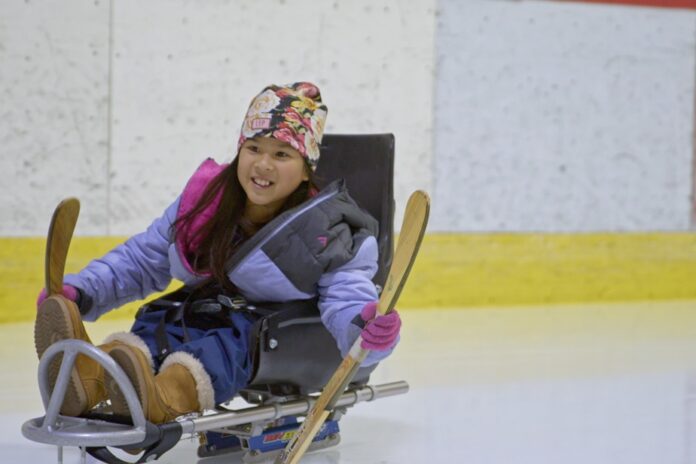Before returning to acting in Indéfendable, actress, host and author Ingrid Falaise presents a new documentary series of her own. In Adapté, she helps families, including a child or sometimes a parent living with a disability, to reconnect with outdoor activities. A way to change the world, one step at a time.
To tease her, Ingrid Falaise’s friends call her “Ingrid wants to know”, she says. This nickname is a nod to an old program hosted by Janette Bertrand where she dared to ask even what is not asked, with the sensitivity and intelligence that we know. “I’m always the one asking questions [in my circle],” says Ingrid Falaise. I like the real, I like people, reality. »
In recent years, television has become his ally to dig into certain flaws in society (Woman, I kill you, Face the monsters, etc.) and the documentary, his favorite format to “get into people’s hearts to bring down barriers and open blinders”. This is again the objective of the Adapté series, presented on AMI-Télé, where she meets families whose parent or child has an illness or has suffered an accident which has left significant physical or intellectual consequences.
Thus, in the first episode, it presents Olivia, a young girl from the Quebec region who, after multiple heart operations shortly after her birth, was left with motor and intellectual limitations. She also meets the family of Tianha, a young girl with spina bifida. They will experience great firsts: one will be able to ride a bike on her own, while the other will realize her dream of riding a horse.
Ingrid Falaise used her own experience to design Adapté. The eldest son of her spouse lives with autism and an intellectual disability, which has had an impact on their way of life. Every other week, the very active couple had to put aside sports activities, because they were not adapted or easily adaptable to the abilities of the elder. “It was out of the question to leave it out, I’m totally against it,” said the host.
While doing research, she discovered the Adapted Sports Foundation and the existence of a luge allowing her son-in-law to hit the slopes with the rest of the family.
With Adapté, she helps families to have stars in their eyes and shows that it is possible to make society more inclusive. “No child should be left on the bench,” she insists, while lamenting that the information is so difficult to find for families who are looking for solutions to solve problems of mobility or accessibility to activities. outdoors.
His series stands out with an extraordinarily fair tone: you never feel the urge to seek emotion at all costs. The camera does not look away if tears come to the eyes of one of the people on the screen, but the host never tries to provoke them. “We went into this series with a desire to celebrate life,” she says.
“We were in a positive state of mind and the families are too,” she continues. They have been through enough ordeals. There were tears, for sure, but the point of the series is to get out, get off the screens, play sports and take care of your overall health. »
The Adapted series has six episodes and is accompanied by a podcast with three segments where Ingrid Falaise discusses with personalities. Designer, columnist and director Stéphane Laporte talks about accessibility (and inaccessibility), athlete Chantal Petitclerc talks about the shock of the accident that left her paraplegic as a teenager and motherhood, while actress Mireille Deyglun evokes the impact of a limited child on the siblings (his twin had Down’s syndrome).
Ingrid Falaise wants to help move things in the direction of openness. Leading by example is clearly an effective way to do this: after seeing her and her family skiing using an adapted sled, the owner of Mont-Blanc in the Laurentians told them that he wanted obtain it and train its staff to make its mountain more accessible. “It may have repercussions on other ski mountains,” rejoices the host already.















